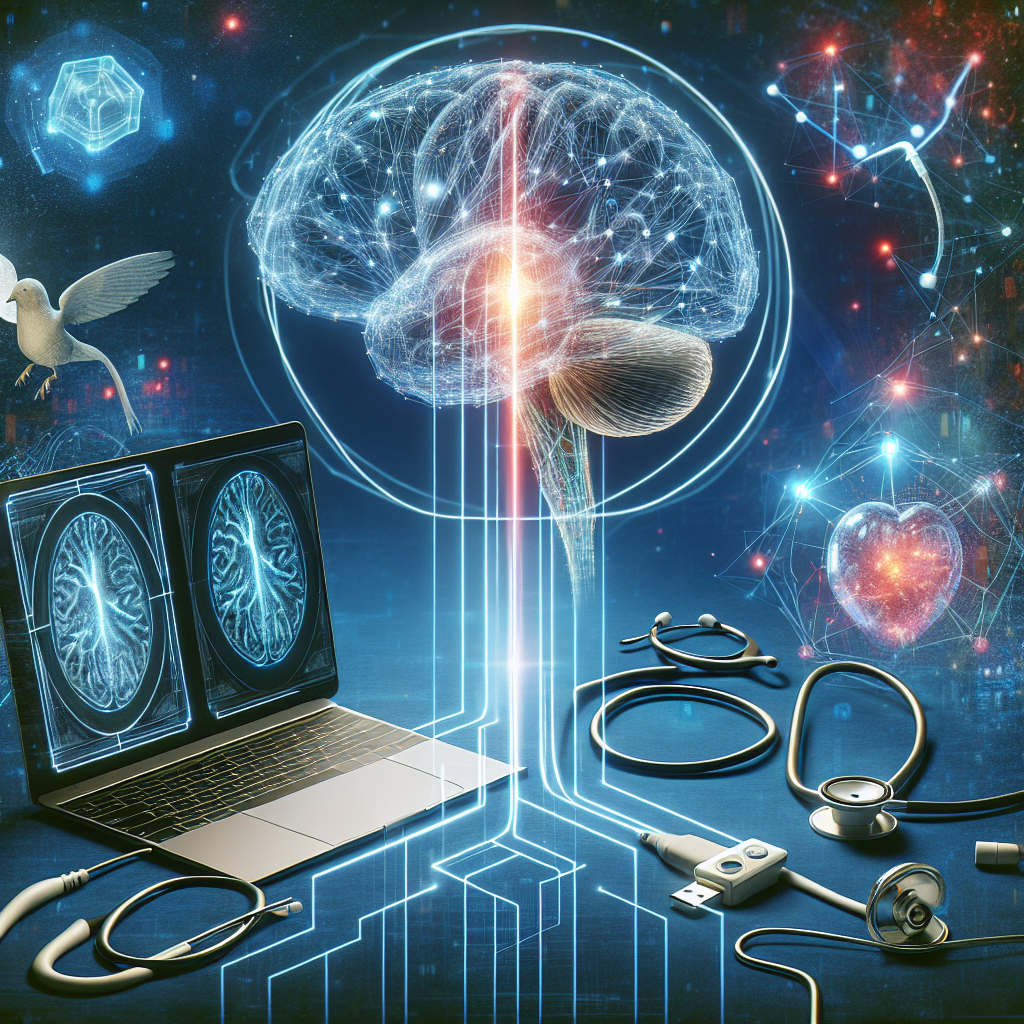Artificial Intelligence (AI) and Machine Learning (ML) have been making significant strides in the field of mental health care in recent years. These technologies have the potential to revolutionize the way mental health disorders are diagnosed, treated, and managed, offering new opportunities for personalized and effective care. In this article, we will explore the current applications of AI and ML in mental health care, as well as the future possibilities and challenges they present.
Current Applications of AI and ML in Mental Health Care
AI and ML technologies are being used in a variety of ways to improve mental health care. One of the most promising applications is in the area of diagnosis. AI algorithms have been developed to analyze speech patterns, facial expressions, and other biometric data to help identify early signs of mental health disorders such as depression, anxiety, and schizophrenia. These algorithms can provide more accurate and timely diagnoses than traditional methods, leading to earlier intervention and better outcomes for patients.
AI and ML are also being used to develop personalized treatment plans for individuals with mental health disorders. By analyzing large datasets of patient information, including genetic, environmental, and lifestyle factors, AI algorithms can identify the most effective treatments for each individual. This personalized approach can lead to better outcomes and reduced side effects compared to one-size-fits-all treatment plans.
Another area where AI and ML are making a difference in mental health care is in the monitoring and management of symptoms. Mobile apps and wearable devices equipped with AI algorithms can track changes in a patient’s mood, behavior, and other indicators of mental health, providing real-time feedback and support. These tools can help patients and their healthcare providers better understand and manage their condition, leading to improved quality of life and reduced relapse rates.
Future Possibilities and Challenges
While the current applications of AI and ML in mental health care are promising, the future holds even greater possibilities. One area of potential growth is in the development of AI-powered virtual therapists. These virtual assistants can provide counseling, support, and guidance to individuals with mental health disorders, supplementing traditional therapy and reaching underserved populations. Virtual therapists can also be available 24/7, providing immediate help in times of crisis.
Another exciting possibility is the use of AI and ML to develop predictive models for mental health disorders. By analyzing a wide range of data sources, including genetic, environmental, and behavioral factors, AI algorithms can identify individuals at high risk of developing a mental health disorder and intervene before symptoms manifest. This early intervention can prevent the onset of a disorder or reduce its severity, leading to better outcomes for patients and lower healthcare costs.
However, the use of AI and ML in mental health care also presents challenges. One of the biggest concerns is the potential for bias in algorithms, which can lead to inaccurate or discriminatory outcomes. It is essential for developers to ensure that their algorithms are trained on diverse and representative datasets to avoid bias and ensure fairness in diagnosis and treatment recommendations.
Another challenge is the integration of AI and ML technologies into existing mental health care systems. Many healthcare providers lack the resources and expertise to implement and maintain these technologies, leading to disparities in access to AI-powered mental health care. It is crucial for policymakers and stakeholders to invest in training and infrastructure to ensure that AI and ML can be effectively used to improve mental health care for all individuals.
FAQs
Q: How accurate are AI algorithms in diagnosing mental health disorders?
A: AI algorithms have shown promising results in diagnosing mental health disorders, with high levels of accuracy compared to traditional methods. However, it is essential to continue refining and validating these algorithms to ensure their reliability and effectiveness in clinical practice.
Q: Can AI and ML replace human therapists?
A: While AI and ML technologies can supplement and support human therapists, they are unlikely to replace the need for human interaction in mental health care. Virtual therapists and other AI-powered tools can provide valuable support and guidance, but the human touch is still essential for building trust, empathy, and rapport with patients.
Q: How can I access AI-powered mental health care?
A: AI-powered mental health care is becoming more widely available through mobile apps, online platforms, and telehealth services. Many healthcare providers are integrating AI and ML technologies into their practice to offer more personalized and effective care. It is essential to discuss your options with your healthcare provider and choose a reputable and trustworthy service.
In conclusion, AI and ML have the potential to revolutionize mental health care by improving diagnosis, treatment, and management of mental health disorders. While there are challenges to overcome, the future looks bright for the integration of AI and ML technologies into mental health care systems, offering new opportunities for personalized and effective care for individuals around the world.

